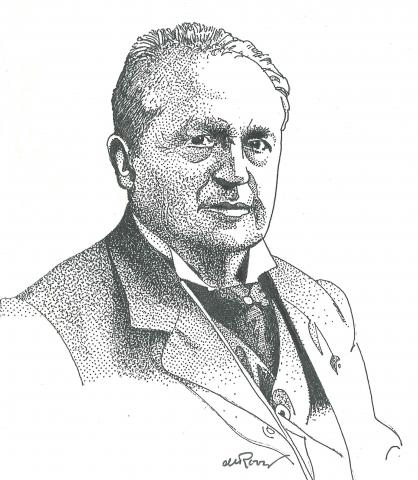A revised and updated version of
Abraham Kuyper: An Annotated Bibliography 1857-2010 by Tjitze Kuipers (2011)
You can buy a printed edition of this book on the site of the publisher.
1903
On January 31, 1903, there was a one-day railroad strike. The strike and its aftermath had a profound impact upon Dutch social and political order. On February 25 Kuyper made a government policy statement (p. 926) in the Second Chamber, speaking about the three bills submitted as a consequence of the strike. These bills legislated the foundation of a railroad brigade, the installation of an investigative committee to examine the legal status and conditions of employment of the railway workers, and penalties for dereliction of duty. “In the well-understood interest of all parties,” Kuyper stated, “lawful authority must be maintained unrelentingly.” On March 10 and 11 Kuyper answered interpellations by P.R. Mees (Liberal Democrat) and P.J. Troelstra (Social Democrat) about the strike and the three antistrike bills (pp. 948–975). In a speech on April 4 (pp. 1088–1092), Kuyper again entered the debate about the antistrike bills. The three bills were passed into law by the Second Chamber on April 9, 1903. On June 16, 1903 (pp. 1234–1237), Kuyper discussed the investigative committee (cf. p. 926) and advocated using the military to maintain law and order. Subsequently, Kuyper spoke about labor conditions in brick works (pp. 1241–1260). The aftermath of the strikes also influenced the debate over two bills dealing with the military courts (pp. 1354–1383). Finally, on July 1 Kuyper took part in discussions about changes to the national budget of 1903 (pp. 1389–1391), about three bills concerning inland waterway shipping in Friesland, and about the conclusions of a parliamentary committee regarding an 1899 report about poverty relief.

